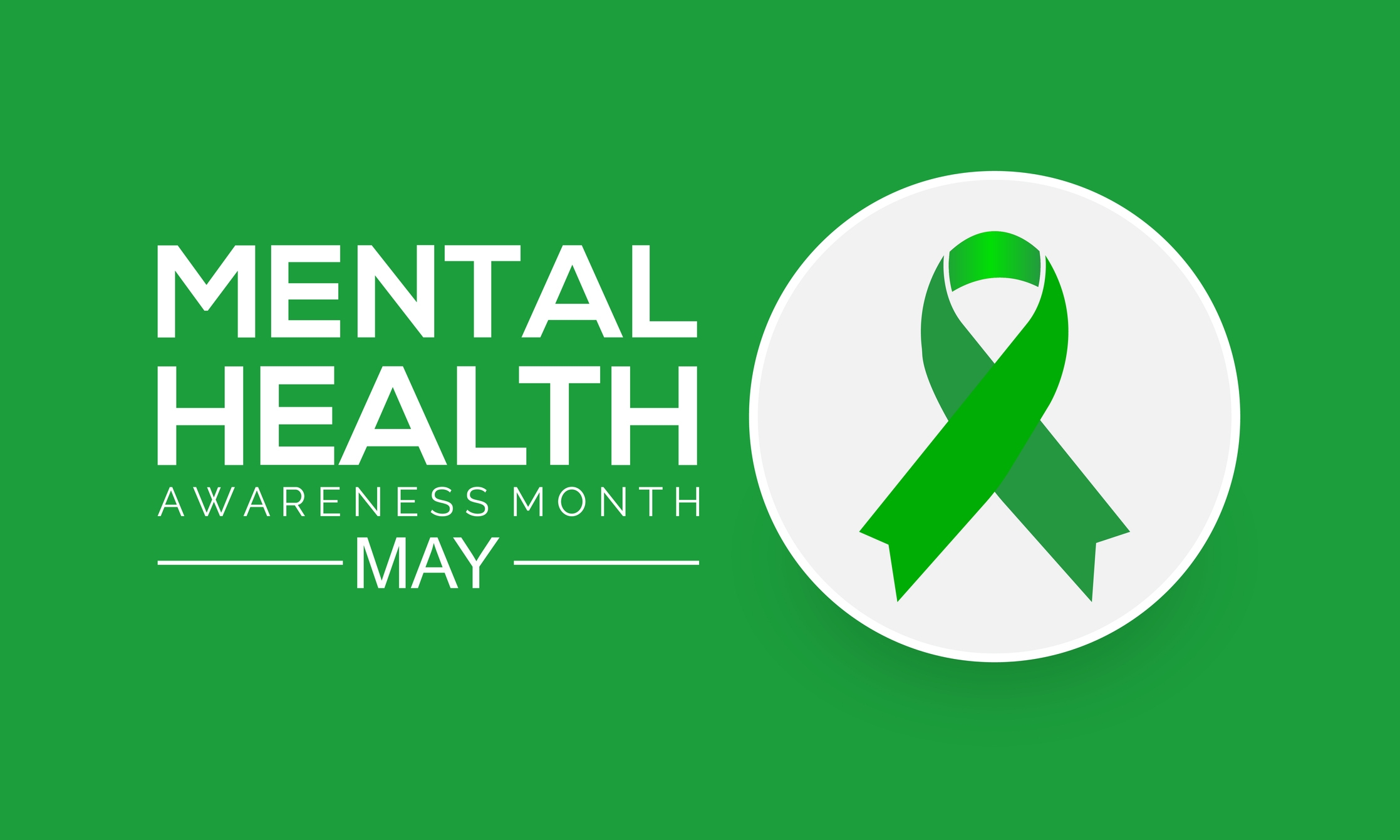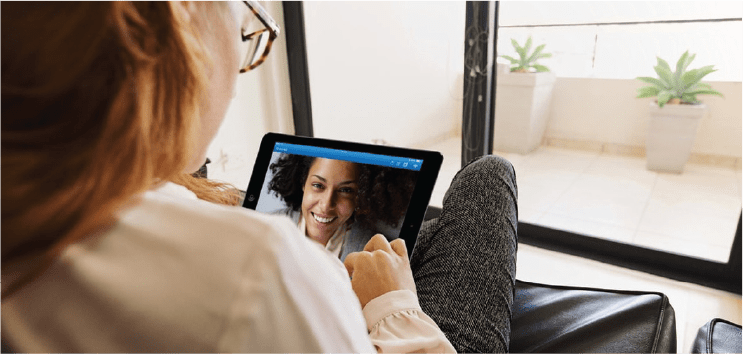May is Mental Health Awareness Month — a time to help break the stigma many people experience, and to provide support to others in any way we can. Each year, more than 43 million adults in America struggle with a mental illness, and less than half receive the services they need due to ongoing social stigmas and barriers to healthcare access. Telehealth services can be a life-saving and effective alternative to in-person care, helping to address the mental health needs of many Americans.
As unlikely as it may seem, the development and use of telepsychiatry began in the late 1950s at the Nebraska Psychiatric Institute with video conferencing to provide group therapy, consultations on psychiatry, and medical student training. By the 2000s, the use in the field blossomed as studies determined telemedicine to be just as effective as in-person visits. In 2020, the mental health challenges of the COVID-19 pandemic drove a high surge in telepsychiatry visits, and demand remains strong.
With a telebehavioral health platform, patients are a click away from the services they need.
Here are a few benefits of having such platforms at the tip of anyone’s fingertips:
- Helps individuals suffering from mental health issues to be able to receive services from the comfort of their own homes
- Eliminates travel times and traffic
- It’s a safety net for patients, especially for those who need a safe space to communicate with someone and may be living in a domestic violence situation or in a neglected household. For those patients, the only way they might be able to talk to someone is to do therapy on their phone in their car, where nobody can hear them
- Patients can connect with someone right away, which is especially beneficial for those at risk of self-harm or those with suicidal thoughts
- Eliminates the need to arrange for childcare or to take time off work to travel to an appointment
- And more
Telehealth provides benefits for all providers, physicians, and patients beyond the potential added liabilities; however, it is essential to note that telehealth is not without risks. Privacy and security breaches can be catastrophic in telehealth when implementing new technologies. Therefore, health IT system vendors need to provide sufficient due diligence to develop proper workflow and prevent new vulnerabilities to enterprises.
Related: Announcing VeeOne Health’s ISO 27001 Certification and SOC 2 Type I Compliance
Implementing a telebehavioral health platform creates an opportunity to provide whole-person care: a multidisciplinary approach where social workers, therapists, psychologists, psychiatrists, and family peer advocates can come together without needing a patient going through outpatient therapy. In addition, this approach optimizes focus on subspecialty care such as PTSD and early psychosis, and providers can also have different state licenses to serve patients across state lines extending access to comprehensive care.
Studies on mental health illnesses are increasing each year, and on a day-to-day basis, applications on the phone have allowed more accessibility to mindfulness techniques, wellness blog articles, mood assessments, and more. However, mental health illnesses’ signs and symptoms vary and are often difficult to keep track of, which makes it harder to detect the causes and find proper treatment. With a multidisciplinary program, providers can utilize remote patient monitoring (RPM), providing tools to monitor your heart and panic attacks from patients suffering from or who have anxiety. Similarly, with sleeping monitors, providers could see and collect data from patients experiencing difficulty sleeping. All remote patient monitoring tools unfold further cognitive behavioral therapy techniques that patients and their therapists could work on together in their appointments.
Related: 7 Benefits of Telehealth and Remote Patient Monitoring on Health Outcomes
About Halide Porras, MSW:
Halide Porras is a social worker and telehealth coordinator for telepsychiatry at VeeOne Health. She was first introduced to virtual platform services during her internship at USC in 2016 for virtual platform and therapy schooling. This was where she learned online healthcare services to be beneficial not only for clients needing therapy, but also for the interns living in rural areas. Porras then worked at a clinic called EDAPT at UC Davis for 2 years focusing on early psychosis with a multidisciplinary approach. She is now at VeeOne Health, working on the operations team where she implements and manages programs focusing on behavioral health.





